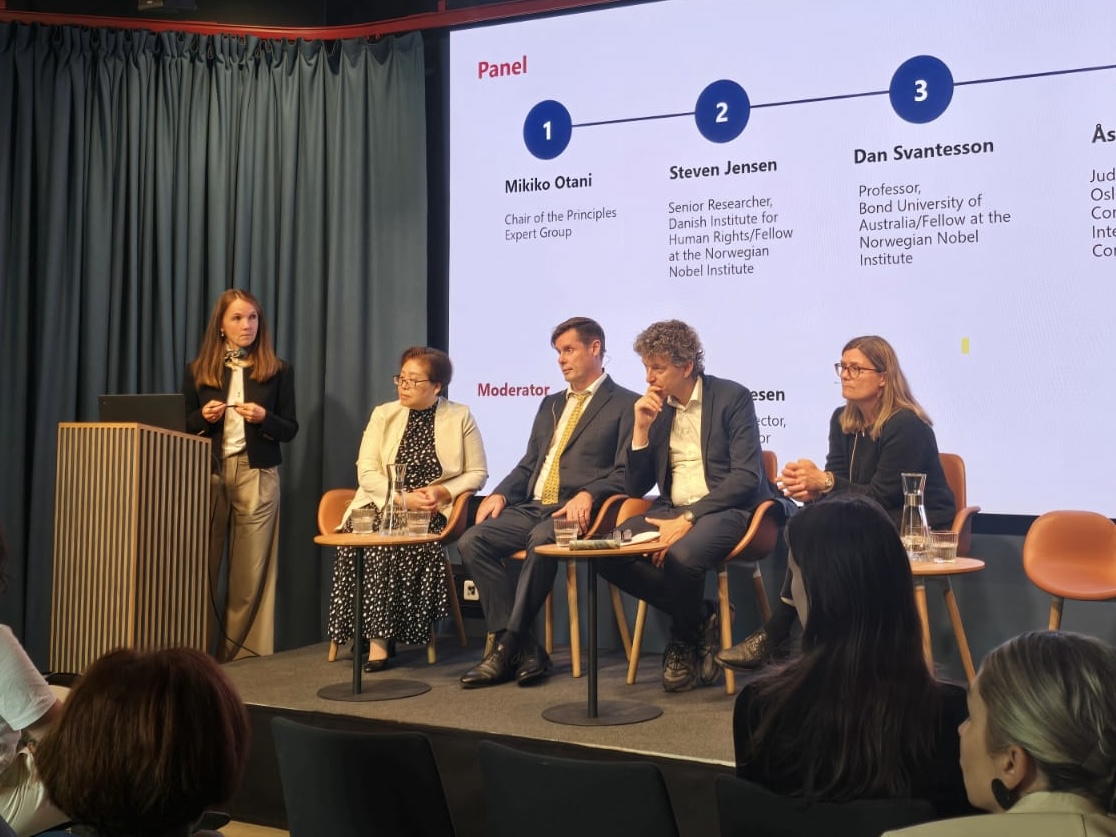Today, the International Commission of Jurists (ICJ), together with the Danish Institute for Human Rights (DIHR), kicked off their work under the Digital Democracy Initiative (DDI) to elaborate a set of principles aimed at guiding efforts to protect human rights in the digital space.
The launch event was held at the Nobel Peace Center and hosted by the Norwegian Nobel Institute.
The project aims to address the urgent need to ensure that human rights remain at the forefront of both civic and private life, which increasingly takes place online.
Led by a group of international legal experts, with contributions from stakeholders from all regions of the world, the initiative will develop global legal principles and guidelines on the application of international law and standards in today’s digital reality.
“The principles this project will develop are not about drafting new laws, but about setting out clearly how existing international law and standards should be interpreted, applied, and enforced in the digital space — in a spirit of progressive development. I believe our work will contribute to making international law more relevant and effective in today’s digital environment,” said Mikiko Otani, Chairperson of the Principles’ Experts Group and ICJ Commissioner, at the launch event.
These principles will address issues such as: State obligations to respect, protect, and fulfil human rights in the digital space; private sector responsibilities and liabilities to respect human rights; accountability frameworks under international law; and the right to effective remedy and reparation for those whose human rights have been violated or abused in, or through, digital spaces.
“For these principles to be effective and influential, three elements are essential: first, a drafting group composed of experts from diverse backgrounds; second, broad involvement of experts and stakeholders to ensure that a wide range of perspectives is integrated into the drafting process; and third, rigorous promotion, recognition, and endorsement — so that States, legislators, policymakers, national human rights institutions, civil society organizations, lawyers, human rights advocates and defenders may refer to and apply them in national and international jurisprudence, and within UN and regional human rights bodies,” Otani added.
An expert group of 18 members, acting in their individual capacities and drawn from diverse disciplines and geographic regions, has been established and tasked with elaborating the principles and guidelines. The group is chaired by Mikiko Otani. Its members include:
- Catalina Botero Marino, ICJ Commissioner
- Chantal Joris, ARTICLE 19
- Dionysia Peppa, SMEX
- Edetaen Ojo, Media Rights Agenda
- Eileen Carter, South African Human Rights Commission
- Eliška Pírková, Access Now
- Francesca Fanucci, European Center For Not-For-Profit Law (ECNL)
- Ian Seiderman, ICJ
- Katitza Rodriguez, Electronic Frontier Foundation (EFF)
- Lorraine Finley, Australian Human Rights Commission
- Mikiko Otani, Former Chairperson of the Committee on the Rights of the Child and ICJ Commissioner
- Nieves Molina-Clemente, Danish Institute for Human Rights
- Richard Wilson, University of Connecticut
- Sarah Zarmsky, Queen’s University Belfast
- Shannon Raj Singh, Athena Tech & Atrocities Advisory
- Taysir Mathlouthi, 7amleh and Advisory Board member for DDI
- Theodore Te, University of the Philippines and Free Legal Assistance Group (FLAG)
- Tomaso Falchetta, Privacy International
The principles will also undergo a regional consultation process to allow input from a wider range of stakeholders and to ensure that challenges unique to each region are heard. They are expected to be completed by 2026.
Contact
Sanhawan Srisod, Senior Legal Adviser, Legal and Policy Office; e: sanhawan.srisod@icj.org





